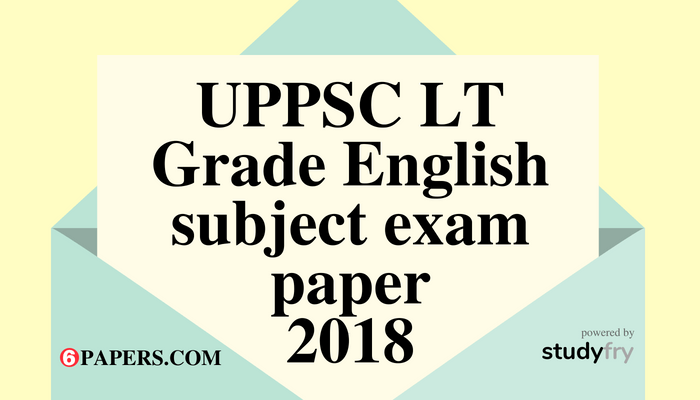131. Fill in the blank with the correct idiom/phrase :
If you disturb me, I shall ____ of my story.
(a) put up with
(b) waste one’s breath
(c) lose the thread
(d) move with times
Show Answer
Hide Answer
Question Nos. 132 to 135 are based on Direct/Indirect Narration. Answer them as desired :
132. Put the give sentence into Indirect Narration :
“Good morning, Vijay,” said Ramesh, “Are you going to the market?”
(a) Ramesh wished Vijay good morning and asked whether he was going to the market.
(b) Ramesh said good morning to Vijay and asked whether he was going to the market.
(c) Ramesh wished good morning to Vijay and asked when he was going to the market.
(d) Ramesh told good morning to vijay and asked that whether he was going to the market.
Show Answer
Hide Answer
133. Change the following sentence into Direct Narration :
Moti asked Gangu whether the latter was in his senses.
(a) “Hey Gangu are you in your senses now?” aaked Moti.
(b) “Gangu, have you lost your senses?” asked Moti.
(c) “Gangu, are you in your senses?”
(d) “Are you senseless, Gangu?” asked Moti.
Show Answer
Hide Answer
134. put the following sentence into indirect Narration :
Sohan said to me, “I have always been your friend.
(a) Sohan told me that he has always been my friend.
(b) Sohan told me that I had always been your friend.
(c) Sohan told me that I have always been his friend.
(d) Sohan told me that he had always been my friend.
Show Answer
Hide Answer
135. Change the following sentence into indirect Narration :
He said to her, “What a cold day!”
(a) He told her that it was a cold day.
(b) He exclaimed that it was a cold day.
(c) He exclaimed sorrowfully that it was a cold day.
(d) He exclaimed that it was a very cold day.
Show Answer
Hide Answer
Question nos. 136 and 137 are based on choosing the correct sentence :
136. Choose the correct sentence.
(a) When I went to school we had to learn Latin.
(b) When I went to school we must have been learning Latin.
(c) When I had gone to school we would be learning Latin.
(d) When I had to go to school we might learnt Latin.
Show Answer
Hide Answer
137. Pick out the correct sentence.
(a) When I grow up I would be an astronaut.
(b) When I grow up then I’II be an astronaut.
(c) When I shall grow up I’II be an astronaut.
(d) When I grow up I’m going to be an astronaut.
Show Answer
Hide Answer
Question nos. 138 to 140 are based on transformation and synthesis of sentences. answer then as instructed :
138. Transform the following sentence into Assertive Sentence :
What is better than milk for one’s health?
(a) Anything is better than milk for one’s health.
(b) Everything is better than milk for one’s health.
(c) Something is better than milk for one’s health.
(d) Nothing is better than milk for one’s health.
Show Answer
Hide Answer
139. Synthesize the following set of sentences into one Simple Sentence :
Homer was a great. poet. He was born somewhere. Nobody knows where.
(a) Homer was a great poet, born anywhere.
(b) Nobody knows the birthplace of the great poet, Homer.
(c) Homer, a great poet, was born somewhere.
(d) Who knows the birthplace of Homer the was a great poet.
Show Answer
Hide Answer
140. Transform the following sentence into Compound Sentence :
In spite of being unwell, he kept on working.
(a) He was unwell though kept on working.
(b) He was unwell end kept on working.
(c) He was unwell, but he kept on working.
(d) He was unwell yet kept on working.
Show Answer
Hide Answer
Translate the given sentences into English (Question Nos. 141 to 143) :
141. Translate the following sentence into English :
ओस चाटने से प्यास नहीं बुझती।
(a) By licking dew thirst cannot be quenched.
(b) much cry, little try.
(c) Great thirst, little dew.
(d) Fog cannot be dispelled by a fan.
Show Answer
Hide Answer
142. Translate the following sentence into English :
जिसकी लाठी उसकी भैंस।
(a) Might is right.
(b) The buffalo belongs to the person who holds a stick.
(c) Whose stick. his buffalo.
(d) The buffalo will come to the person who guides it with a stick.
Show Answer
Hide Answer
143. Translate the following sentence into English :
अन्त भला तो सब भला।
(a) All is well that ends well.
(b) If end is good, everything is good.
(c) If end is well. everything is well.
(d) All is good that ends good.
Show Answer
Hide Answer
Translate the given sentences into Hindi (question Nos. 144 to 146) :
144. Translate the following sentence into Hindi :
Several villages were burnt down.
(a) कई गाँव जला दिये गये।
(b) गाँवों को जला दिया गया।
(c) कई गाँव जल गये।
(d) गाँवों को जला डाला गया।
Show Answer
Hide Answer


Leave a Reply